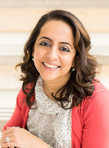Who is My Chief Engineer?
SIO2022 Conference posts continue, I won’t blame you if you’ve tuned me out at this point. I think this is my last one. If I do any more, I’ll need to give SIO a category of it’s own in my blog. And if you’ve noticed only things close to my heart, get a label – motherhood, travelogue, Hindu festivals…
In my post on Human Connection I mentioned the conversation I had with John Cho about survivorship. Before we got to survivorship, I wanted to talk about treatment. I told John it took less than forty-eight hours after the diagnosis for my husband Nuwan and me to realize that we were well in over our heads. I called my neighbor, dear friend, and OB who delivered both my children, Degaulle in (yet another) moment of desperation and asked, “Who is in charge?” He told me I was. How was that possible? How was I supposed to navigate the complex world of oncology? Nuwan and I knew nothing about cancer, and yet we were supposed to pick doctors from the list of providers near us. The analogy I used was that of a chief engineer. I told John, “At work when a new engine program is launched, the technical team is divided into subsystems such as controls and calibration, air handling, performance et al. Every swim lane reports to the chief engineer who is the technical lead and decision maker. The performance team can suggest their plan, but it might push air handling to it’s limit. The chief engineer keeps an eye on subsystem interactions, dependencies and optimization before making the call. All that for an engine! But for something as complex as cancer treatment I didn’t know who my chief engineer was!”
Degaulle had my back, he understood how overwhelmed we were. I didn’t know which set of doctors to entrust my life with. I didn’t know if I needed to go MD Anderson, some university hospital or would the local cancer center suffice. (At this point I had no idea of standard of care and why should I? I was 34) Degaulle reassured me, “Niyati, I will take care of everything. I will get your appointments sorted and the physicians aligned.” He got me an appointment with Dr. Zusan for breast surgery, Dr. Wagner for medical oncology, and Dr. McMullen for radiation. He was spot on with each recommendation, as evident in the photograph below. If you are wondering about my hunchback and moon face, this was the waxing phase, I was much worse.
 Radonc McMullen with his favorite brown sister he never had
Radonc McMullen with his favorite brown sister he never had Dr. Zusan’s was the first appointment we had post diagnosis. She wrote out the tentative treatment plan – neoadjuvant chemotherapy, followed by surgery and radiation. At this point I assumed she is the chief physician who will line up the treatment. 10 days later we saw her again for my port. But that was it, we didn’t see Dr. Zusan for another 2 and ½ months, at the half way point of chemo because I was under my medonc’s care. Zusan wasn’t my chief engineer.
It bothered me that during treatment it wasn’t visible to me that my doctors were speaking to each other. I understand cases are discussed in tumor board (note: the polar opposite of the joy brought by a cheese board, and way more complex than a chess board; the only two boards I knew before cancer). But how does it work when you’re using two different hospital systems, 35 miles apart? I was bringing work life into real life and looking for the chief physician as the coordinator between medonc, radonc, surgery and physical therapy.
John told me, the way he treats his patients, is that he is the quarterback, and his patient is the ball that will get passed from one specialist to another. To me that implied John is the coordinator/ leader of the team. I wasn’t sure who was making my overall treatment plan. Maybe this is where integrative oncology comes in, a one stop shop for comprehensive care. In other conversations people told me it is the job of the nurse navigator. It became apparent that this depends on how the hospital defines nurse navigators and the resources they’ve put in training the nursing staff. I felt like I was my own navigator.
I’ve wondered how do patients who don’t have a Degaulle in their corner sort things out? Nuwan and I are a solid team, how do unmarried/ single people do it? And if this was so hard for two professional engineers, how do non-STEM patients navigate? What about countries where standard of care isn’t strictly implemented? So many questions… sigh.
There you have it my friends; information overload, knowledge transferred, experience shared from SIO2022. I promise to be quiet *cough cough* for a minute *cough*.



